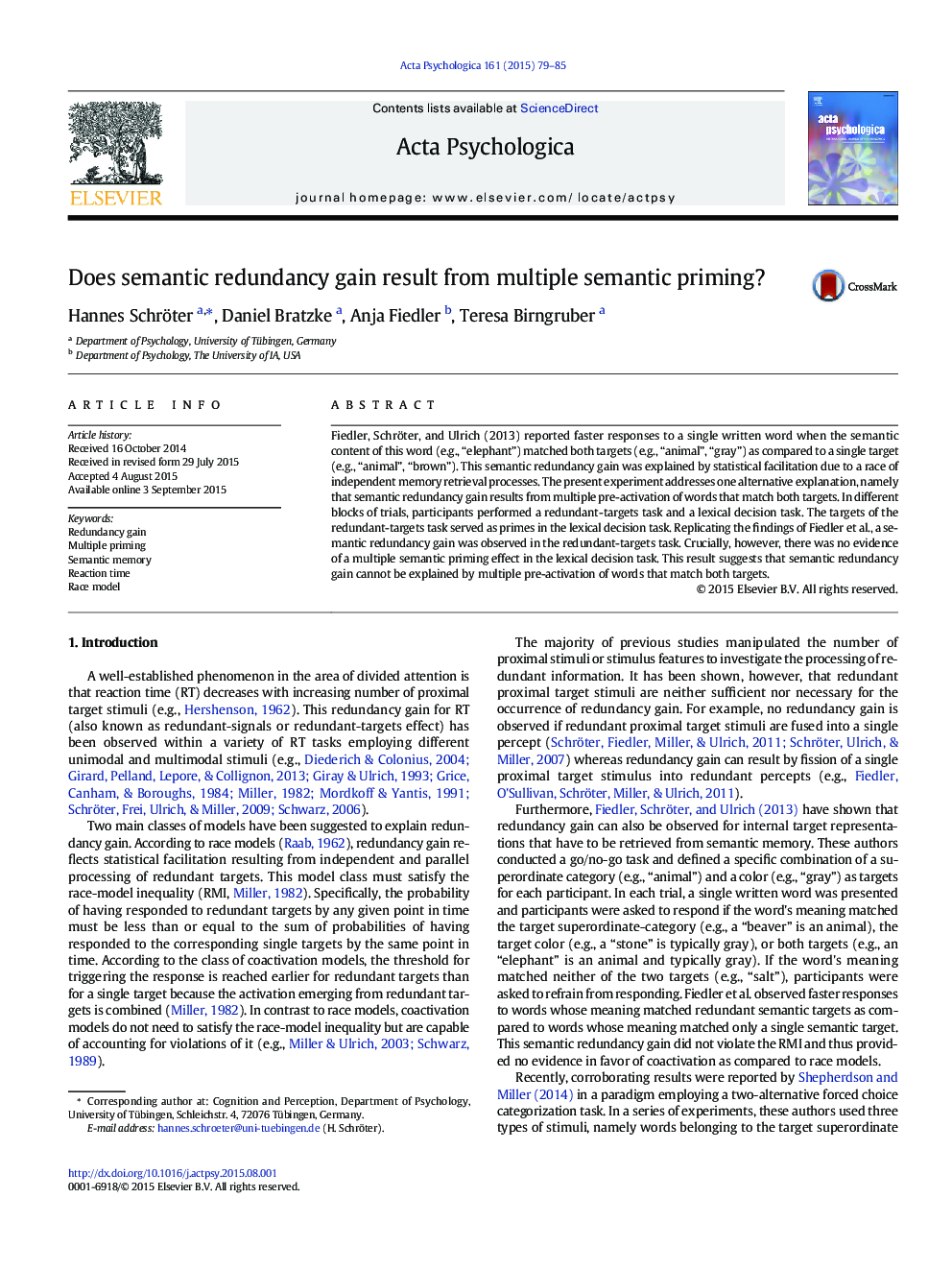| Article ID | Journal | Published Year | Pages | File Type |
|---|---|---|---|---|
| 7277235 | Acta Psychologica | 2015 | 7 Pages |
Abstract
Fiedler, Schröter, and Ulrich (2013) reported faster responses to a single written word when the semantic content of this word (e.g., “elephant”) matched both targets (e.g., “animal”, “gray”) as compared to a single target (e.g., “animal”, “brown”). This semantic redundancy gain was explained by statistical facilitation due to a race of independent memory retrieval processes. The present experiment addresses one alternative explanation, namely that semantic redundancy gain results from multiple pre-activation of words that match both targets. In different blocks of trials, participants performed a redundant-targets task and a lexical decision task. The targets of the redundant-targets task served as primes in the lexical decision task. Replicating the findings of Fiedler et al., a semantic redundancy gain was observed in the redundant-targets task. Crucially, however, there was no evidence of a multiple semantic priming effect in the lexical decision task. This result suggests that semantic redundancy gain cannot be explained by multiple pre-activation of words that match both targets.
Related Topics
Life Sciences
Neuroscience
Cognitive Neuroscience
Authors
Hannes Schröter, Daniel Bratzke, Anja Fiedler, Teresa Birngruber,
